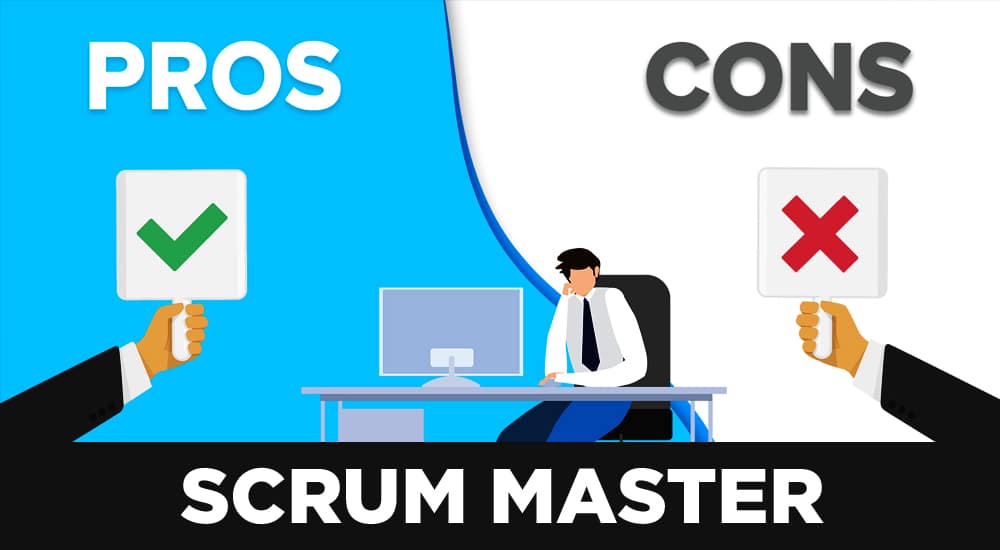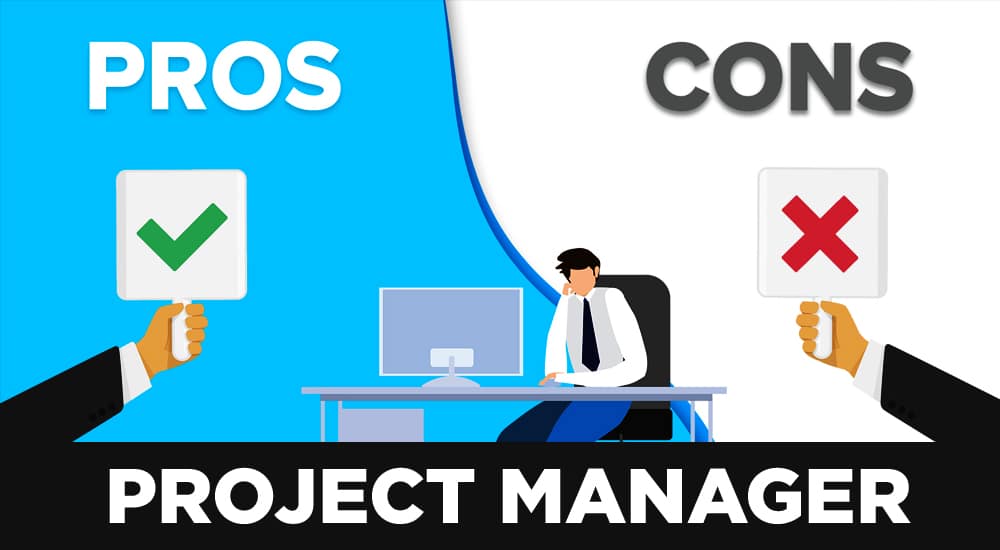In a business setting involving active team processes, you need people in positions of authority to help navigate projects, support team members, and hold them accountable. But there are many options for positions that fill such key roles. How do you choose which is right for you and your team?
The lines between the different approaches and where they’re appropriate can sometimes be blurry. For example, while many people think that the roles of a Scrum Master and a Project Manager can overlap, each serves a unique purpose.
Curious about the differences between a Scrum Master and a Project Manager? Ready to figure out whether to pursue a Scrum Master training course or PMP training course so your team can start benefiting?
Then keep reading below!
What is a Scrum Master vs. a Project Manager?
To decide which certification fits your team, it’s best to start by decluttering your perspectives of each of these approaches. While they may seem to be interchangeable, this is not usually the case.
Instead of closing your eyes and pointing to make your pick, consider these job descriptions as we dive into the differences.
Scrum Master

As the name suggests, a Scrum Master is a team leader who helps the team exemplify the tenets of the Scrum method. What is the Scrum method, you might ask? The Scrum Project Management Method is an agile management framework that helps teams navigate the development and delivery of complex products.
However, take note that a Scrum Master is not the same thing as an Agile Project Manager. While each works to help get the job done, they contribute to that goal in very different ways.
The Scrum Master takes on a servant leadership role. Think of this role as operating from the bottom up. One of the most important parts of any project is the group of people working on completing it. Without the proper support, even the most organized of teams can fail.
This is an aspect that many businesses can fail to take into consideration. The addition of a Scrum Manager helps ensure the morale and productivity of the team members by coaching team members for better understanding and actualization of Scrum goals and rules and helps the team clear hurdles that arise in the process.
At its baseline, a Scrum Manager helps hold the whole team to Scrum standards. The most notable of these include assisting teams in excelling in cross-functionality, making the most productive project work increments called Sprints, and helping the whole organization understand and best utilize the Scrum methodology.
Scrum methodology is purposely open-ended and somewhat incomplete, which, according to its founders, gives teams the space to think creatively and adapt to innovative solutions. This is the main overall goal of the Scrum method and the Scrum Master.
Project Manager

While a Scrum Master takes a more bottom-up role in the life of a project and team, the Project Manager employs more of a top-down approach to organizing and orchestrating more detailed operations.
It could be argued that Project Managers must employ more of a micro-managing ideology. While this may have negative connotations, the day-to-day details of how projects are completed can often be neglected, failed, or even lost without someone presiding over their completion.
The person in charge of executing, monitoring, and presiding over projects is the Project Manager. Many team project methodologies utilize the position of the Project Manager in multiple steps of the project process from integration and planning through to closing.
While Project Managers operate in a leadership capacity like Scrum Masters, their main focus is the successful completion of the day-to-day task details that contribute to a project’s completion. They are more operational at a higher level, not working individually with smaller teams like a Scrum Master does.
It could be argued that Project Managers focus more on the tasks while Scrum Masters focus more on the people.
You can probably now see why these two jobs are not interchangeable at all but actually complement each other in totally different ends of the project completion process.
Now, how do you choose which position certification will best serve your team in its current form for its most successful project completion?
Below, we’ll dive into the benefits and drawbacks of each to help you better understand which position is most valuable for your team.
Pros and Cons of Scrum Masters

To evaluate the benefits and drawbacks of utilizing a certified Scrum Master, let’s take a general view of the benefits and drawbacks of the Scrum framework itself.
Keep reading to learn the pros and cons of the Scrum framework:
| Project deliverables are completed quickly and efficiently | |
| Large, complex projects are divided into more manageable, bite-sized sprints | |
| Works well for fast-paced projects and smaller teams | |
| Provides clear goals and objectives for team | |
| Makes use of feedback from customers, shareholders, and team members | |
| Helps individual team members feel acknowledged and valuable | |
| Agile and self-organized methods such as Scrum contradict traditional project management views | |
| Daily meetings can be irritating for some team members | |
| Challenging to implement for large teams | |
| Scope creep can set in when hard deadlines and end-dates become more indefinite. | |
| Team members must be experienced and understand the methodology | |
| Project success is highly reliant on the commitment and reliability of individual team members |
Now, it may be easier to see a clearer picture of the type of organization that Scrum management would work best for. Overall, small, flexible teams full of self-starters and highly motivated individuals with a lean toward collaboration and innovation would benefit from the leadership and support of a Scrum Master.
Still, it’s worth noting that the addition of a Scrum Master would have the most noticeable and immediate effect for a team already trained in the Scrum method. As mentioned above, it can take a while to implement this method in a new team.
But also be aware that, if you’re interested in implementing this method with a fresh team, you should have a certified Scrum Master from the outset to support the process.
So if you’re looking for a quick transition and an easy fix for team management, then you might not be ready for the commitment of instituting the Scrum method along with a Scrum Master.
However, if your team fits the image painted above, then it’ll most likely be worth the effort, in the long run, to implement this methodology with the help of a certified Scrum Master.
Pros and Cons of Project Managers

Now, let’s look at the opposite methodology. Examining the drawbacks and benefits of employing a Project Manager to oversee the day-to-day task details that drive the completion of your project can help you decide if this approach is right for you.
Keep reading to learn more about the pros and cons of using a Project Manager:
| Projects benefit from having the leadership focus of one individual over a particular project | |
| Close monitoring of processes helps identify weak or not-working areas for quicker correction | |
| Workflows are more easily measured and accounted for | |
| Can help keep costs low and deliverables on time | |
| Can more easily assign the right team member to the best corresponding task for their skills | |
| Can lead to authority overlaps, which can confuse and frustrate team members and cloud project vision | |
| If you have multiple projects running simultaneously, you will need multiple project managers | |
| Success of the project is highly reliant on the competency of the Project Manager | |
| Project management methodology can devolve into micro-managing or obsessive control | |
| Can keep team members “inside the box,” discouraging creativity or innovation |
A clearer picture probably emerges from this comparison of which organizations or projects would be better off with Project Managers. Whereas Scrum Masters are best for innovative problem solving and complex products on the team level, Project Managers would preside well over larger teams in the implementation of a single project with more simple objectives and goals.
For projects with highly measurable task goals and clear-cut timelines, project management helps keep all the individual working pieces of the machine in order with all the others. In fact, the Project Manager’s job is really to keep the working machine well-oiled and running smoothly.
The Project Manager does this by attending to daily tasks, while the Scrum Master does this by attending to team members.
While fostering out-of-the-box thinking and allowing for creativity sound great and innovative during meetings, some projects are just better suited to the project management methodology. You’ve heard the adage, “if it ain’t broke, then don’t fix it”?
If your day-to-day task implementation isn’t broken but simply needs a keen eye watching out and paying attention to the details, then adding a certified Project Manager for your specific project may be the better fit.
Comparing Scrum Master and Project Manager: Most Defining Differences
If you’re still on the fence about which certification path is best for your team or project, then let us boil down the major differences that set each of these positions apart.
Firstly, Scrum Masters deal with small teams and Project Managers deal with individual projects. Scrum Masters focus more on the people, while Project Managers focus more on the tasks.
Secondly, Scrum Masters work from the bottom-up to support team members to self-organize and construct their own framework. Conversely, Project Managers work from the top-down to impose detailed structure for day-to-day tasks that lead to project completion.
Thirdly, Scrum Masters fosters creative thinking within teams to develop innovative solutions to problems or complex deliverable goals. On the other hand, project managers help keep project goals on time and efficient by monitoring tasks and results and quickly implementing any necessary changes.
Many get confused with these two positions in terms of their overlap. While they serve very different functions, both the Scrum Master and the Project Manager must develop three very important skill sets: communication, organization, and leadership. How each position uses those skill sets, though, differs greatly.
Project Managers must use those skills to be decisive, manage time well, and identify risks and outcomes quickly. Scrum Masters, on the other hand, must use those abilities to coach their team, implement Agile frameworks, and lead by example with servant leadership.
Which Certification is Right for You?
In truth, some organizations would work well in utilizing both positions. The Scrum methodology is a type of project management approach, and from our discussion of each position, it’s easy to see how their opposite roles could complement each other.
However, when it comes down to choosing which certification to pursue, there are lots of options for Scrum Master training courses and Project Manager training courses.
Our PMP training course places emphasis on strategic and business knowledge while covering all the trends, practices, and considerations that contribute to core competency in project management.
Self-paced and with a 99.9% pass rate, it’s designed to teach you everything you need to know to lead successful projects while minding the details and day-to-day tasks that can make or break a project.
Our Scrum Master training course teaches you how to deliver quality products to customers through the effective use of daily sprints, team support, and other Scrum applications. This course is also self-paced.
If you’re a team leader or project manager looking to implement a transition to the Scrum methodology or a professional looking for certification to support a team already utilizing Scrum methods, then this training is perfect for you.
Final Thoughts
At the end of the day, Scrum Masters and Project Managers both have essential jobs that help deliver quality, timely products to customers and keep productivity rolling.
Deciding which certification fits your team will come down to deciding between an agile and a more waterfall project management approach. From the top-down or the bottom-up, every team and every project needs organization and management tailored specifically to its values and goals.
If your corporate DNA tends toward free-thinking and flexibility to innovate for fast-paced and complex goals, then try out the Scrum Master training course. If you prefer to stick to tried-and-true methods to ensure measurable productivity in day-to-day tasks, then sign up for the PMP training course.
Regardless of the certification you choose, you won’t be disappointed with the improved organization and productivity that you’ll get as a result.
